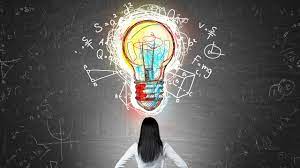
If I were a scientist
Science, often hailed as the torchbearer of human progress, is a multifaceted discipline that encapsulates our relentless pursuit of knowledge and understanding of the natural world. It is the cornerstone of innovation, guiding humanity towards new frontiers and solutions to complex problems. This essay delves into the vast realm of science, exploring its importance, history, various branches, and the profound impact it has on our lives.
The Importance of Science
Science serves as the bedrock of modern society, shaping our world in numerous ways. Its significance can be summarized in several key points:
Advancements in Technology: Scientific research fuels technological breakthroughs, from smartphones to medical imaging devices. These innovations have transformed how we live and work, making life more convenient and efficient.
Medical Progress
The field of medicine has been revolutionized by science. Vaccines, antibiotics, and cutting-edge treatments have extended human life expectancy and improved the quality of life for millions.
Environmental Sustainability: Science provides us with the tools to understand and mitigate the impacts of climate change and environmental degradation. It offers solutions for sustainable energy, resource management, and conservation efforts.
Space Exploration
Science enables us to explore the cosmos, expanding our knowledge of the universe. Missions to other planets and the International Space Station exemplify human curiosity and our desire to uncover the mysteries of space.
Economic Growth
Research and development based on scientific principles drive economic growth and job creation. Industries such as biotechnology, information technology, and renewable energy are flourishing thanks to scientific discoveries.
Historical Evolution of Science
The roots of modern science can be traced back to ancient civilizations, where early humans observed and documented natural phenomena. However, it wasn’t until the Scientific Revolution of the 16th and 17th centuries that science began to take its current form. Key historical figures like Galileo Galilei, Isaac Newton, and Johannes Kepler laid the foundation for modern physics and astronomy.
The Age of Enlightenment in the 18th century brought about a more systematic approach to scientific inquiry and the spread of scientific knowledge. During this time, philosophers like Voltaire and Jean-Jacques Rousseau advocated for reason, critical thinking, and the scientific method.
In the 19th and 20th centuries, the rapid acceleration of scientific discovery became evident. Charles Darwin’s theory of evolution, Albert Einstein’s theory of relativity, and the discovery of the structure of DNA by James Watson and Francis Crick are just a few examples of groundbreaking developments.
Branches of Science
- Science is a vast and diverse field, encompassing a wide array of branches, each specializing in a particular aspect of the natural world. Some prominent branches of science include:
- Physics: The study of matter, energy, and the fundamental forces of the universe. It seeks to understand the behavior of particles, from the smallest subatomic particles to the largest galaxies.
- Chemistry: The science of matter, its composition, properties, and interactions. Chemistry underpins various industries, including pharmaceuticals and materials science.
- Biology: The study of living organisms, from microscopic bacteria to complex ecosystems. Genetics, ecology, and evolutionary biology are subsets of this field.
- Astronomy: The exploration of celestial bodies, including stars, planets, and galaxies. Astronomy has expanded our knowledge of the universe’s vastness and complexity.
- Earth Sciences: This branch focuses on the Earth itself, covering geology, meteorology, and oceanography. It provides insights into natural disasters, climate patterns, and the planet’s history.
- Social Sciences: These include psychology, sociology, anthropology, and economics, which examine human behavior, societies, and cultures.
Impact of Science on Society
- Science’s influence on society is immeasurable. It has brought about transformative changes, shaping the world as we know it. Here are a few areas where science has had a profound impact:
- Healthcare: Medical advancements, such as vaccines, antibiotics, and surgical procedures, have saved countless lives. Biomedical research continues to offer hope for treating diseases and extending human longevity.
- Communication: The advent of the internet, smartphones, and global communication networks has revolutionized the way we connect and share information.
- Transportation: Science has led to innovations in transportation, from the development of automobiles and airplanes to the exploration of sustainable alternatives like electric vehicles.
- Energy: Research in renewable energy sources, such as solar and wind power, holds promise for reducing our reliance on fossil fuels and addressing climate change.
- Agriculture: Advances in genetics, crop science, and agricultural technology have increased food production and improved the livelihoods of farmers.
- Environmental Protection: Science helps us understand the impact of human activities on the environment, leading to conservation efforts and policies aimed at preserving the planet for future generations.
Conclusion
Science is a testament to human curiosity, intellect, and our quest to understand the world around us. It has transcended historical and cultural boundaries, providing answers to age-old questions and presenting new challenges for exploration. From the microcosmic world of subatomic particles to the macrocosmic expanse of the universe, science continues to shed light on the mysteries of existence and empower us to shape a better future. Its enduring importance lies not only in the knowledge it imparts but in the transformative impact it has on society, technology, and the well-being of humanity. As we continue to journey through the uncharted territories of scientific discovery, we remain poised to unveil even greater wonders and usher in a brighter and more enlightened world.
By: Vriensca Ditya Musti Galih
Write and Win: Participate in Creative writing Contest & International Essay Contest and win fabulous prizes.


